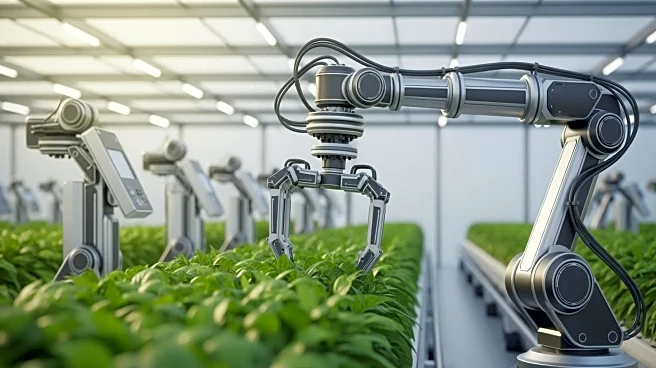What's Happening?
Farmdar, an agritech company specializing in AI and space technologies for sustainable agriculture, has secured funding from ADB Ventures, the venture capital arm of the Asian Development Bank. This strategic
investment aims to accelerate the deployment of Farmdar's AI and precision agriculture products across South and Southeast Asia. The collaboration is expected to enhance climate resilience and adaptation in the region, addressing challenges such as climate change pressures, declining productivity, and volatile supply chains. Farmdar's products, including CropScan and YieldPro, offer AI-driven insights to improve agricultural planning and increase yields.
Why It's Important?
The investment is significant as it addresses critical challenges faced by farming communities in Asia, such as climate change and supply chain volatility. By leveraging AI and satellite data, Farmdar aims to provide precise monitoring and predictive capabilities, which are essential for farmers, agribusinesses, and financial institutions. This partnership with ADB Ventures not only supports Farmdar's growth strategy but also contributes to sustainable and inclusive growth in countries like Thailand, Malaysia, Indonesia, and Vietnam. The initiative underscores the importance of technological innovation in enhancing agricultural productivity and sustainability.
What's Next?
Farmdar plans to strengthen its presence in existing markets and launch pilot projects in new regions across Asia. The funding round, which includes contributions from existing investors Indus Valley Capital and Moment Ventures, highlights broad investor support for Farmdar's expansion strategy. As the company continues to develop its AI-driven solutions, it is expected to play a pivotal role in transforming agricultural practices and improving food security in the region.
Beyond the Headlines
The partnership between Farmdar and ADB Ventures reflects a growing trend of integrating technology with agriculture to address environmental and economic challenges. This collaboration may set a precedent for future investments in agritech solutions that prioritize sustainability and climate resilience.










